The BBC’s editorial guidelines on ‘War, Terror and Emergencies’ include a section titled ‘Use of Language’: [emphasis added]
“11.3.5 Our reporting of possible acts of terror should be timely and responsible, bearing in mind our requirement for due accuracy and impartiality. Terrorism is a difficult and emotive subject with significant political overtones and care is required in the use of language that carries value judgements. We should not use the term ‘terrorist’ without attribution.
11.3.6 The word ‘terrorist’ itself can be a barrier rather than an aid to understanding. We should convey to our audience the full consequences of the act by describing what happened. We should use words which specifically describe the perpetrator such as ‘bomber’, ‘attacker’, ‘gunman’, ‘kidnapper’, ‘insurgent’ and ‘militant’. We should not adopt other people’s language as our own; our responsibility is to remain objective and report in ways that enable our audiences to make their own assessments about who is doing what to whom.”
Yet at the same time as the BBC ‘explains’ its refusal (in certain cases) to use the term ‘terrorist’ by invoking “political overtones”, “value judgements” and “a barrier…to understanding”, it actually has no problem with the adoption of “other people’s language as our own” in other situations.
Previously (see ‘related articles’ below) we have seen how the BBC has replaced the instructions relating to Temple Mount as they appear in its own style guide with the politically motivated language used by the PLO and other Palestinian factions. That practice now frequently compromises audience understanding of events.
We have also seen how the BBC has adopted the Palestinian practice of labelling all Israeli Jews “settlers” regardless of their place of residence: a practice which is clearly both “a barrier to understanding” and a “value judgement”.
Such examples of the BBC’s adoption of “other people’s language” were evident in the April 21st edition of the BBC World Service radio programme ‘OS’.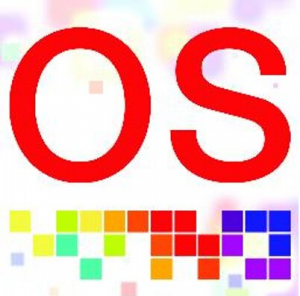
That nearly six-minute item (from 15:08 here) related to rioting – including attacks with fireworks and rocks – which took place on Temple Mount earlier in the day. Presenter James Reynolds introduced the item by describing that rioting as “fighting” and using the partial term “the Aqsa Mosque compound” contrary to BBC style guide instructions. [emphasis in italics in the original, emphasis in bold added]
Reynolds: “To Jerusalem now on OS, where there was further fighting earlier between Israeli police and Palestinians. It’s the latest violence at a key religious site which is a flashpoint between the two sides. Muslims know the area as the Aqsa Mosque compound, Jews know it as the Temple Mount. It’s deeply important to both religions, which are both by chance marking important religious holidays at this time. A number of Palestinians have been injured or arrested by Israeli security forces. Israel says it’s responding to Palestinian violence intended to stop Jewish visitors from having access to the compound. The neighbouring state of Jordan is hosting an emergency meeting to try to establish calm. A little earlier I spoke to BBC Arabic’s Muhannad Tutunji. He was by one of the entrances to Jerusalem’s Old City, the Damascus Gate.”
Throughout the item Tutunji used the partisan term “settlers” to describe Jews, obviously without having any idea of where the people to whom he was referring actually reside. The people throwing rocks, firebombs and fireworks, on the other hand, were described as “worshippers” in Tutunji’s account.
Tutunji: “At the morning hundreds of settlers entered the courtyard of al Aqsa Mosque, guarded by the Israeli police and entered the mosque’s courtyard of Muslim worshippers. This led to clashes between the worshippers and the Israeli police which resulted in the injury of a number of Palestinians with rubber-coated metal bullets and after that, mosque for Muslim worshippers reopened after 10 a.m. in the morning.”
Reynolds: “And what’s the scene like now where you are? Have things calmed down? Damascus Gate of course is one of the gates into the Old City.”
Referring to an event which took place the previous day, Tutunji replied:
Tutunji: “After yesterday and when the police closed the march of flags for the Right-wing people in Israel, it’s a little bit normal here. The state of tension in the city of Jerusalem is still continuing but in the morning we can’t see any tension here. Despite the city’s beauty in the month of Ramadan as well as atmosphere of Christian holidays, we can see that when you walk here in Jerusalem you will see that the people feel nervous because of the settlers frequent…eh…frequent…and presence of large forces of the Israeli policemen. The economic conditions are difficult here because the tension and because Israel prevented the arrival of all the Palestinians from the West Bank. That led to the absence of large numbers in the Old City which makes the condition of merchants in Jerusalem more difficult.”
Reynolds made no effort to relieve audiences of the erroneous impression created by Tutunji’s false claim that “Israel prevented the arrival of all the Palestinians from the West Bank”.
Reynolds: “And from the Damascus Gate, where you are, to the Aqsa Mosque compound I’d say, what, ten-to-fifteen-minute walk along the alleyways of the Old City. What do you see when you do that walk at the moment?”
Tutunji: “You can see people are going inside the Old City. They are going to meet people and then to pray at al Aqsa Mosque. You will also see the shops in the Old City are opened and they sell everything here. They also sell hummus and falafel for the Iftar time. And you can see that it’s still normal here but when you can…when you get inside the Old City in the morning you will see the tension because from 7 a.m. until 10:30 the Israeli police allow the settlers to get inside al Aqsa Mosque and then you can see many Palestinians inside al Aqsa Mosque that the Israeli police should get them outside of the al Aqsa Mosque courtyard. So the tension specially in Jerusalem starts from 7 a.m. until 10 a.m. and then it goes normal here in Jerusalem. After that maybe sometimes there are clashes between Palestinians and Israeli police at Damascus Gate because there are a lot of Palestinians that are sitting here in Damascus Gate and you can see a lot of policemen, there always be tension here.”
Reynolds refrained from correcting Tutunji’s false claim that “the Israeli police allow the settlers to get inside al Aqsa Mosque”: Jews of course do not enter the mosque on their visits to Temple Mount. He also subsequently ignored the false claim that Jews – or “settlers” as Tutunji continued to call them – “are trying every hour and every day to enter al Aqsa Mosque”.
Reynolds: “And how does the tension you’re seeing today compare to tension you may have seen in this particular part of Jerusalem in recent years?”
Tutunji: “From the start of the Jewish holidays we started seeing these tensions. From seven days until now. Every day in the morning as I said you see the clashes between the Palestinians and the Israeli police inside al Aqsa Mosque and inside the Old City. When you walk in Jerusalem and the city of Jerusalem and the villages it’s calm but when you get inside the Old City, every day from the first day of the Jewish holidays you can see the tension inside because there are a lot of settlers that are going inside the Old City. Many of them are trying every hour and every day to enter al Aqsa Mosque and the tension started because of the Palestinian presence in al Aqsa Mosque and in the Old City. So when you see many settlers and many Palestinians in a small town, small city like the Old City with many policemen, the tension ya’ani getting rise.”
Reynolds: “And of course the al Aqsa compound, which to Jewish people is the Temple Mount compound, has been a flashpoint for many, many years. Muhannad, are you aware of any attempts to mediate, to try to calm down the situation in that area?”
Tutunji: “All diplomatic means, things and attempts to calm the situation, which originally began before the month of Ramadan through Jordanian, Palestinian and Israeli Palestinian visits and meetings, did not work because what is happening in Jerusalem it’s tension that has nothing to do with the decisions of countries and the policies of presidents. What the Palestinians and Arabs demand here in Jerusalem, that settlers should be preventing [sic – prevented] from storming and entering al Aqsa Mosque – a mosque that is special for the Palestinians, for Muslim and has great symbolism.”
Once again Reynolds failed to clarify to listeners that Jews do not enter the mosque itself and he failed to challenge Tutunji’s use of the word “storming” to describe short pedestrian visits to Judaism’s most holy site. Neither did Reynolds point out before he closed the item that the statement he made in his introduction – “Israel says it’s responding to Palestinian violence intended to stop Jewish visitors from having access to the compound” – is supported by his colleague’s explanation of “what the Palestinians and Arabs demand here in Jerusalem”. Unsurprisingly, the blatant discriminatory nature of that demand did not warrant any discussion on this BBC programme.
Reynolds: “Muhannad Tutunji from BBC Arabic reporting from Damascus Gate in Jerusalem.”
Obviously much of the misinformation fed to BBC audiences worldwide in this item is rooted in the use of partisan and politicised terminology which turns a site revered by three religions into a “mosque” and all Jews – regardless of their place of residence – into “settlers”.
Clearly it is high time for the BBC to consider the way in which the adoption of “other people’s language” carries “significant political overtones” which amount to “value judgements” that impede audience understanding in coverage of topics that do not fall into the category of ‘War, Terror and Emergencies’.
Related Articles:
BBC COVERAGE OF VIOLENCE IN JERUSALEM – PART ONE
BBC COVERAGE OF VIOLENCE IN JERUSALEM – PART TWO
BBC JERUSALEM BUREAU REPORTING ON TEMPLE MOUNT RIOTS
MAPPING CHANGES IN THE TERMINOLOGY USED BY THE BBC TO DESCRIBE TEMPLE MOUNT
PLO RECOMMENDED TERMINOLOGY CONTINUES TO APPEAR IN BBC CONTENT
PLO TERMINOLOGY RETURNS IN BBC JERUSALEM DAY REPORT
BBC ARABIC BREACHES STYLE GUIDE ON TEMPLE MOUNT
BBC NEWS REPORT ON JERUSALEM VIOLENCE PROMOTES A PARTIAL NARRATIVE

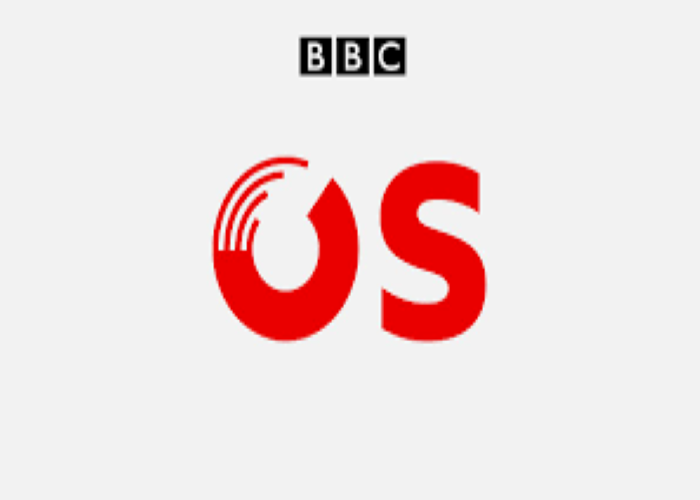
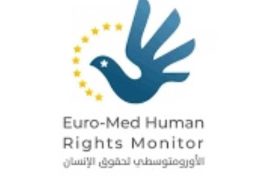
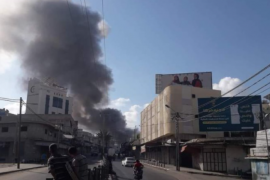
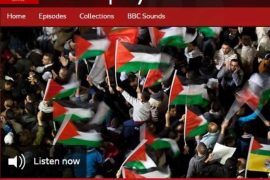

The BBC, home of Islamic Jihad in the UK, financed by Iranian money and the main purveyor of anti-Israel propaganda in the Western world. #defundthebbc